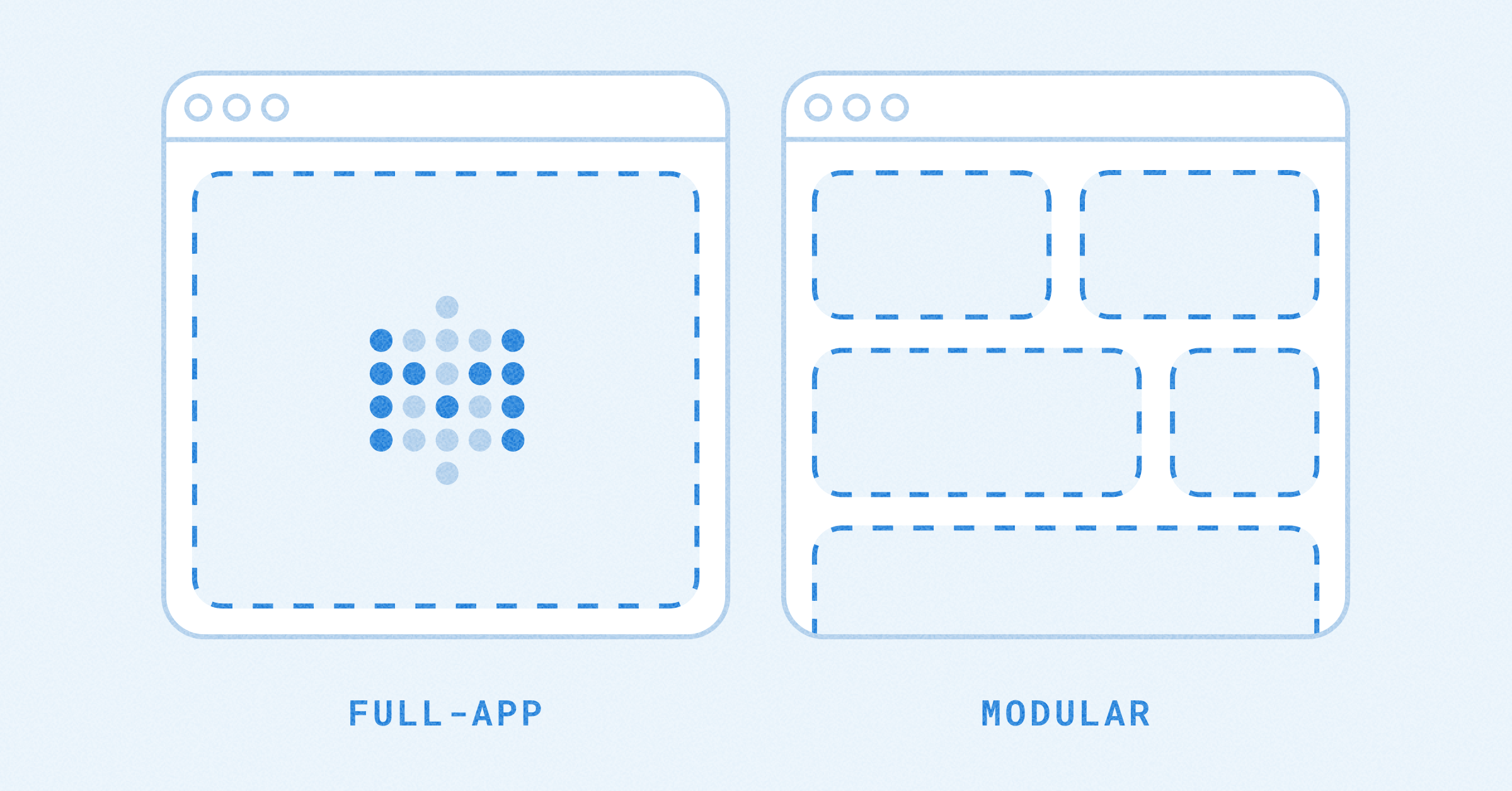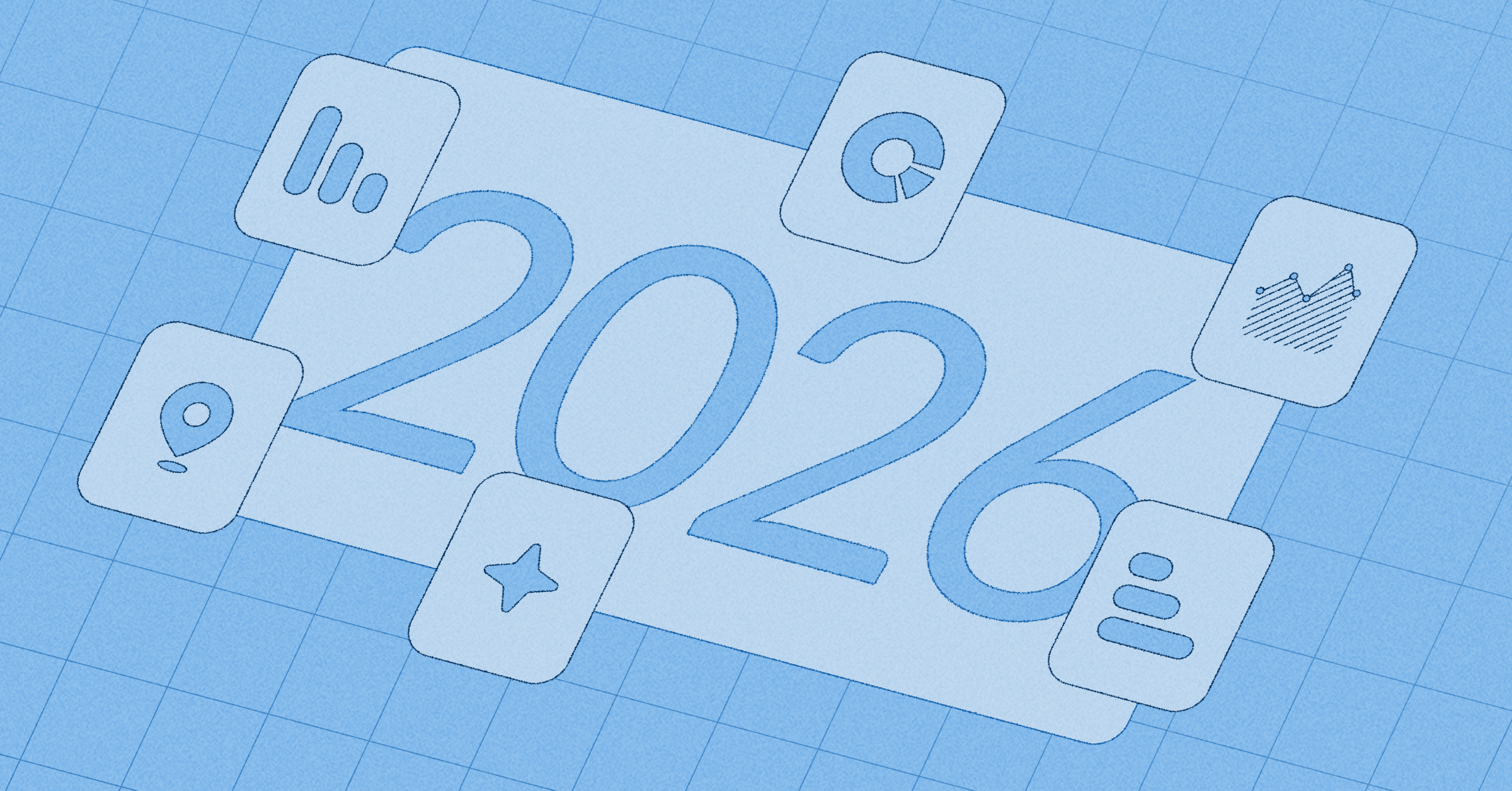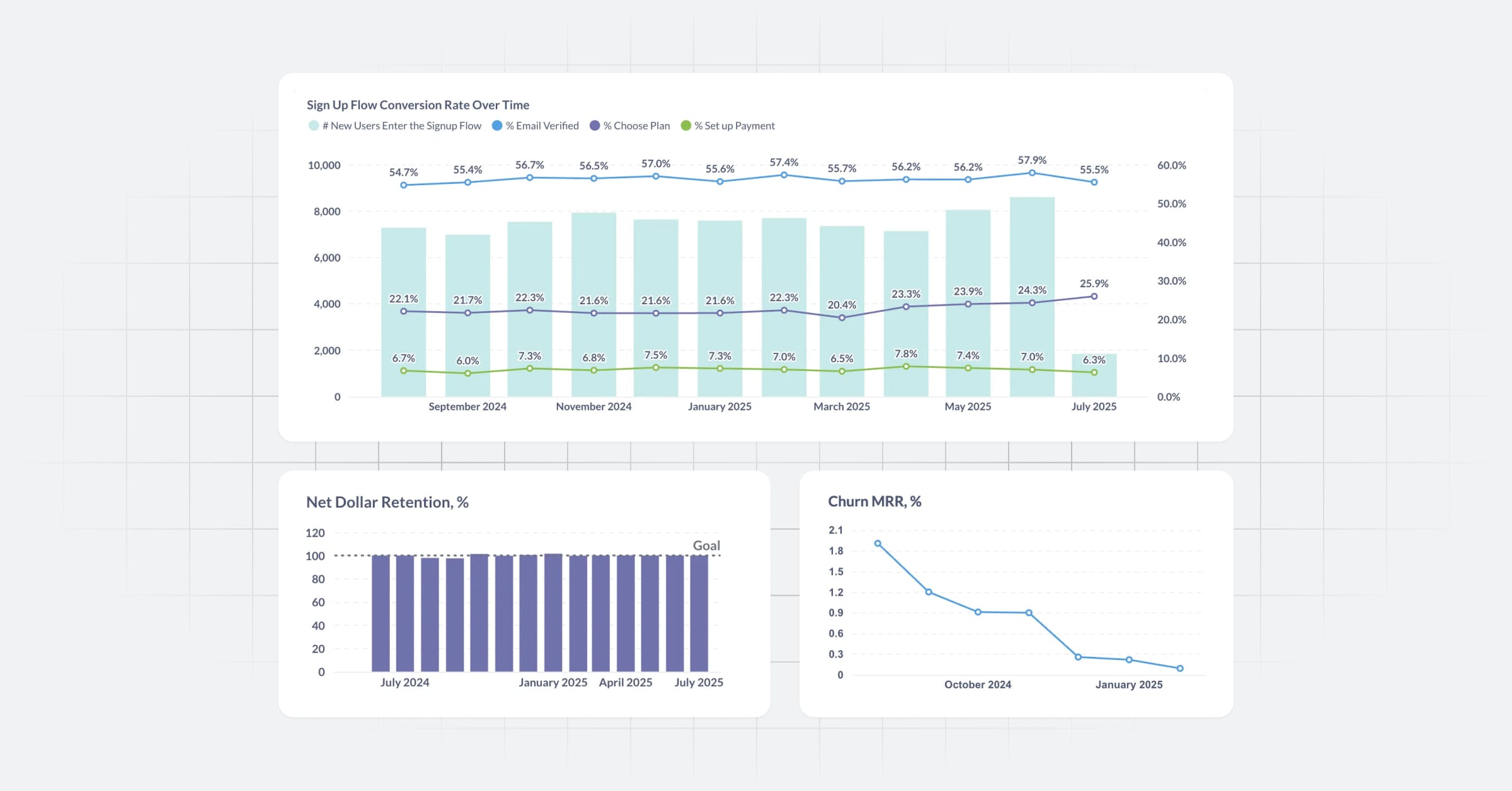‧
8 min read
Business intelligence career paths
The Metabase Team
‧ 8 min read
Share this article
In this post we’ll take a look at some common roles within data teams and what it takes to get them.
Businesses structure their data teams differently — there’s no one-size-fits-all structure or org chart that will map to every organization out there.
While it’s not unheard of for data professionals to shift from one of these roles to another, they each have their own focuses and require distinct skill sets. If you’re interested in exploring a BI career and enjoy working with data, one of the roles below may match your skills and career goals.
Data analyst
Data analysts are typically tasked with gathering, processing, and evaluating the data that their organization generates. This includes analyzing and interpreting information, creating reports, and extracting insights drawn from different datasets. Data analysts tend to be heavily involved in the business side of things, like presenting findings to important company stakeholders; they often work closely with product managers, who shape the direction a product based on those findings. Ultimately, analysts are there to help their organization make smarter and better-informed decisions.
As a data analyst, you’ll need a strong grasp of SQL to succeed, along with data visualization skills and experience with statistics and statistical programming. You should know how to use — but not necessarily develop — spreadsheet software, databases, and data warehousing applications. You should also develop soft skills like critical thinking and storytelling, as analysts must be able to draw conclusions from data and convey their findings to others within their organization.
There’s plenty of room for growth if data analysis is your chosen career path. Since analysts rely on soft skills in addition to technical knowledge, they’re often well-equipped to manage teams, and may, after some years of experience, end up with titles Analytics Manager, Data Lead, or VP of Data. If you aren’t interested in managing a team, you can still level up as an analyst as you become more and more of an expert, either in general analytical skills or in the analysis of a particular domain.
Data scientist
While data analysts examine historical data, data scientists deal with data modeling and prescriptive analytics. For example, a data scientist may build machine learning models to make predictions about their organization’s data. These predictions could involve about their company’s product, forecasting demand, or predicting internal matters like anticipating fraud.
Knowing SQL and how to best visualize data is important for data scientists, along with programming languages like Python and R. Since data scientists work so extensively with predictive models, these roles also demand strong mathematics skills like linear algebra (especially where machine learning is involved), multivariable calculus, and statistics. You probably won’t spend every moment of every day as a data scientist working alone on a machine learning model — communication skills and the ability to work well with a team are important too.
The career trajectory of a data scientist can fall along similar lines as an analyst. However, just like in software engineering, not all data scientists will eventually end up managing people. Many data scientists remain individual contributors, especially once they’ve carved out an invaluable niche at their organization.
BI developer
You can think of business intelligence developers as situated somewhere between analysis-heavy roles like data scientists and analysts and engineering roles like an analytics engineer or data engineer. The “BI” part is important here — while there may be some overlap with data analysts, the work of BI developers tends to have a greater focus on data that directly affects business decisions and outcomes. This can involve creating and tracking metrics like KPIs, as well more in-depth usage of a BI tool. A lot of this work involves building out dashboards to encourage self-service analytics, creating reports that can be used again and again, and knowing how to best harness the tools in an organization’s data stack, both through the lens of analysis and infrastructure.
A good BI developer possesses a strong foundation in database technologies and crafting complex and performant queries (most likely in SQL), but also knows what information their colleagues need in a dashboard and how best to present that. Possessing some business acumen helps a lot too, as BI developers anticipate the needs of their organization and how the results of their analyses can lead to successful outcomes.
Data engineer
Data engineers are intimately familiar with the inner workings of an organization’s data infrastructure and pipelines, as they’re tasked with building and/or maintaining those pipelines. These engineers make sure that data can make its way from the source to the data warehouse and onward to an organization’s BI tool. They’re also the ones preparing data for analysts and data scientists, making sure that systems are functional and efficiently structured, and working with other engineers to define what data gets captured in the first place.
Strong coding skills are a must for people who take on these roles, where there’s less focus on analysis and interpretation than the positions discussed above. Familiarity with elements of the data pipeline is important too; knowing how to work with different data warehouse platforms will give you a leg up.
Analytics engineer
Analytics engineers are typically tasked with modeling data, doing ETL work, and transforming and munging data within datasets to make it usable by analysts and scientists. Analytics engineers are the ones on the team making sure that end users have clean datasets to work with, part of an industry-wide shift toward encouraging self-service analytics within organizations.
Analytics engineers tend to have a broader skill set than data engineers, and possess some applied knowledge of how end users are working with the data they transform and prepare. If you want to go this route, sharpening your SQL skills is a good idea, as is knowing how to use different data transformation tools. Don’t neglect the soft skills either, since communication is fundamental to working across teams in a role like this one.
Educational pathways to a BI career
Data science programs — like undergraduate majors, Master’s degrees, bootcamps, and certificates — have exploded in recent years, but there’s still no surefire educational pathway to landing one of these roles.
Perhaps unsurprisingly, a lot of BI jobs, particularly those on the engineering end, attract people from STEM backgrounds, like those with expertise in statistics, computer science, or mathematics. However, plenty of data professionals from unconventional backgrounds like the humanities or communication thrive in this field, drawing on skills like critical thinking and effective decision-making to analyze and interpret data.
Breaking into business intelligence
If you recently received or are working on your degree and want to get your foot in the door for a career in business intelligence, consider seeking out an internship in one of the areas that interests you. A great way to gain hands-on experience within a real working environment, internships can also be helpful in getting a better feel for what you do or don’t want to pursue, what kinds of working environments you enjoy, and providing opportunities for mentorship.
If you’re currently working in a non-BI role at an organization but want to test the business intelligence waters, see if you can participate in any projects that involve data work. If that’s not possible yet, start even smaller, like setting up informational interviews with people on the data team or sitting in on their team meetings. If your organization uses a BI tool where you can dig into data analysis yourself, spend some time getting to know how it works and what you can learn about your data while using it.
As with most technology-focused jobs, you’ll be much better off if you learn by doing. While knowing SQL is foundational to many business intelligence careers, don’t think you need to memorize every SQL command out there in order to land a data job. In fact, don’t do that! This guidance isn’t exclusive to learning SQL; it’s is a good rule of thumb for all technologies and applications as your develop your data skill set. Having some foundational knowledge of a concept is an important first step, but building out projects of your own as you construct a portfolio demonstrates a lot more to employers than telling them about all the SQL books you’ve read. One way to start is by learning to analyze a dataset you’re interested in — maybe it’s weather patterns or baseball stats. Once you have a dataset to dig into, learning to run specific queries or analyze certain information will be a lot more engaging and fruitful as you embark on your BI career journey.




